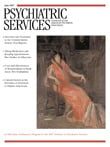Interest in complementary and alternative medicine approaches to mental health treatment is growing in Western countries, even as many conventional mental health practitioners have little knowledge of these practices. The appeal of nonconventional treatment approaches includes the holistic approach to health, the emphasis on self-healing and the "development of latent human capacities," and the focus on wellness and balance rather than pathology.
It is important for psychiatrists and primary care physicians to gain a better understanding of these alternative treatments, in part because many people already engage in nonconventional therapies in combination with their prescribed conventional treatments but without alerting their physician. Clearly there are significant risks to uncoordinated concurrent therapies, including drug and herb toxicities and unexplained poor outcomes because of incompatible treatments.
Also, as people seek out information about complementary and alternative medicine, it is helpful for the physician to be able to offer an informed response. A physician who is unfamiliar with alternative treatment approaches might unnecessarily dismiss potentially beneficial therapies and practices. Treatment efficacy can be greatly enhanced if the physician is able to establish a collaborative treatment relationship by being open, in a knowledgeable way, to a patient's interest in complementary and alternative therapies.
This book is an excellent review of the most widely practiced complementary and alternative treatments. The book is organized into two parts, with Part 1 discussing background issues, such as ethical, regulatory, and safety considerations involved with the use of these approaches. In Part 2, each chapter covers a particular treatment approach, discussing the philosophy behind it, evidence of effectiveness, safety issues, and clinical guidelines for use. I found some chapters very useful as thorough reviews of the most current evidence base for practices with which I am more familiar, such as nutrition and nutritional supplements, exercise, mindfulness, and spirituality. Other chapters were, for me, a good introduction to ancient Eastern treatments—Ayurveda, Chinese herbal remedies, qigong, yoga, and homeopathy, for example. The work is well written, well organized, and balanced in its presentation of the currently available evidence, or lack thereof, supporting the different treatment approaches.
The authors discuss the paucity of controlled studies evaluating the effectiveness of many nonconventional approaches to treating mental illness. This is largely because of the difficulties in applying Western research models and methods to Eastern approaches with very different conceptual frameworks and philosophical assumptions. For example, Chinese treatments such as acupuncture are focused on correcting imbalances of energy.
In the introduction, James Lake states that this book "is intended to be a resource that provides mental health practitioners and patients with current information about effective treatments of mental illness that are not yet fully examined or endorsed by the institutions of conventional biomedicine." The editors succeed in this goal; this book would be a very helpful reference book to have at hand in the office because it contains charts describing the evidence base for the different complementary and alternative medicine treatments organized by disorder or symptom treated. Reference charts for drug-herb and drug-supplement interactions are also provided, as well as charts listing the possible adverse effects of nutritional supplements. In addition, each chapter contains a summary of practical clinical guidelines summarizing the information presented.

